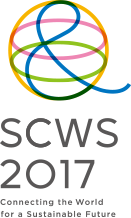Each year on November 10, International Science Center and Science Museum Day (ISCSMD) celebrates the idea that engaging all people in science and technology encourages action towards sustainability rooted in diversity, equity, and inclusion. Toward this end, ISCSMD promotes the awareness and advancement of the United Nations Sustainable Development Goals.
ISDSMD highlights the work science and technology centers and museums do to spark action toward advancing these global goals. In 2015, the United Nations General Assembly adopted the 2030 Agenda for Sustainable Development, an ambitious blueprint for pursuing shared global prosperity through a set of 17 Sustainable Development Goals (SDGs). The SDGs represent a vision for tackling global challenges like poverty, inequality, and climate change to build more resilient communities while leaving no one behind.
Science centers and museums are in a unique position to engage all members of their communities in learning about—and engaging with—the SDGs, seeking collaborative solutions to local and global sustainability challenges through science, technology, and innovation.
So, what will you do this year to celebrate at YOUR science and technology center or museum?
Getting started is easy: think about how your institution’s existing programs and activities relate to one or more of the SDGs. Some museums develop special activities, programs, or partnerships as part of their celebration of ISCSMD. Many institutions choose to highlight on ISCSMD work they are already doing that is connected to one of the 17 SDGs.
Read about the 17 SDGs and think about how to best highlight and advance the efforts your institution is already making toward implementing the goals:
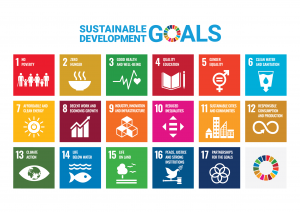
1. No poverty
2. Zero hunger
3. Good health and well-being
4. Quality education
5. Gender equality
6. Clean water and sanitation
7. Affordable and clean energy
8. Decent work and economic growth
9. Industry, innovation, and infrastructure
10. Reduced inequalities
11. Sustainable cities and communities
12. Responsible consumption and production
13. Climate action
14. Life below water
15. Life on land
16. Peace, justice, and strong institutions
17. Partnerships for the goals
After identifying how you are already achieving or advancing the SDGs in your exhibits, programs, or activities, let your visitors, partners, and communities know about these efforts and how they can learn more. You can also create or expand local partnerships to boost your institution’s impact.
Finally, inspire others by sharing your stories on social media using the hashtags #ISCSMD2019 and #ScienceDay.
Here are a few ways ASTC members around the world are marking ISCSMD this year:
- Hidrodoe, a water-themed science center in Herentals, Belgium, has organized several SDGs-themed activities like an obstacle course to find clean water (SDG #5 and #6) and a walk through forests around the center (SDG #15).
- Universum, Museo de las Ciencias, UNAM in Mexico City has exhibitions on life below water (SDG #14) and life on land (SDG #15).
- The Planetarium Science Center in Alexandria, Egypt is hosting an all-day festival on November 10.
- Centro Ciência Viva da Floresta in Proença-a-Nova, Portugal is developing education around forests (SDG #15).
- Domus, Museos Científicos Coruñeses in A Coruña, Spain created Bocados, an exhibition on nutrition and the SDGs that covers a range of issues including access to water and gender equality (SDG #2, #3, #5, #6).
Ready to learn more?
Read what ASTC’s president and chief executive officer, Cristin Dorgelo, has to say about the sustainable development goals.
In case you missed it, take a look at the July–August 2018 issue of Dimensions magazine focused on the SDGs. This article by Maarten Okkerson describes The Hague’s Museon’s One Planet, a solutions-based exhibition on achieving the 17 SDGs.
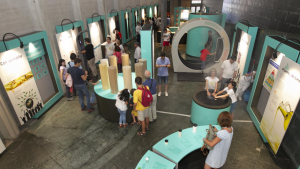
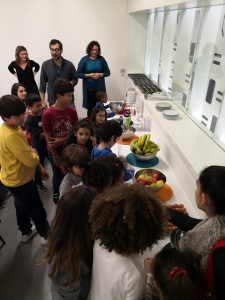
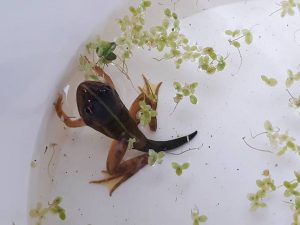
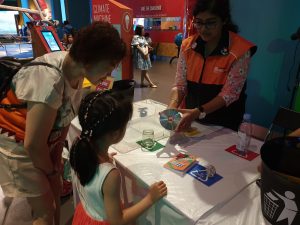

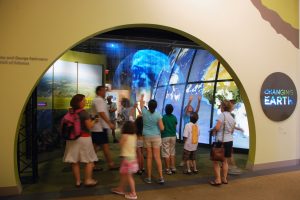
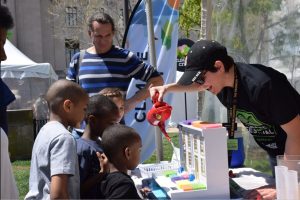
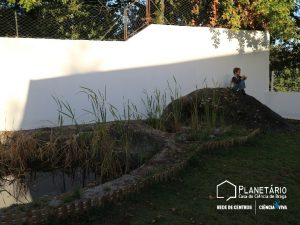 Planetário – Casa da Ciência in Braga, Portugal has announced an ISCSMD celebration with planetarium and laboratory activities focused on education (SDG #4), conservation and sustainable use of marine resources (SDG #14), and sustainable use of land resources (SDG #15).
Planetário – Casa da Ciência in Braga, Portugal has announced an ISCSMD celebration with planetarium and laboratory activities focused on education (SDG #4), conservation and sustainable use of marine resources (SDG #14), and sustainable use of land resources (SDG #15). 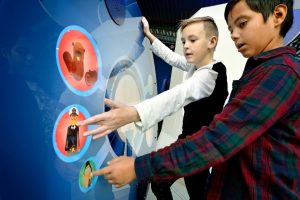 Hidrodoe, a water-themed science center in Herentals, Belgium, on organizing several SDGs-based activities focused on fun, interactive experiences. Earlier this year, the center offered an obstacle course to find clean water (SDGs #5 and #6) and a workshop for participants to build a solar bottle bulb (SDG #7). Last month, Hidrodoe held a nature walk through forests around the center (SDG #15).
Hidrodoe, a water-themed science center in Herentals, Belgium, on organizing several SDGs-based activities focused on fun, interactive experiences. Earlier this year, the center offered an obstacle course to find clean water (SDGs #5 and #6) and a workshop for participants to build a solar bottle bulb (SDG #7). Last month, Hidrodoe held a nature walk through forests around the center (SDG #15). 
